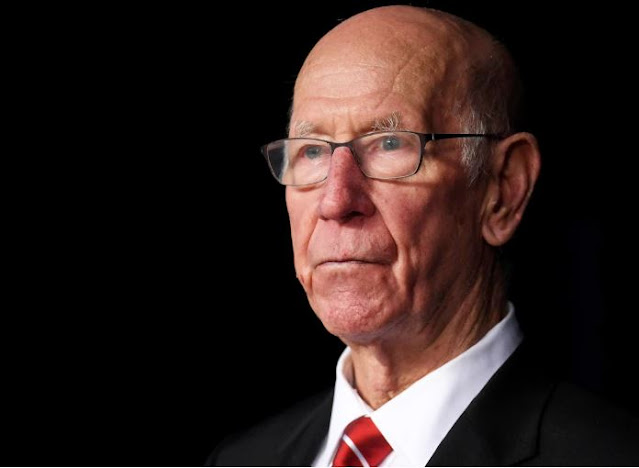Biden's Pioneering Executive Order Aims to Cultivate AI Expertise and Ensure Responsible Use
Biden's Pioneering Executive Order Aims to Cultivate AI Expertise and Ensure Responsible Use
| Biden's Executive Order Aims to Boost AI Experts and Ensure responsible Ues |
In a groundbreaking move, the Biden administration has issued an executive order with a resounding call for a "governmentwide AI talent surge" across the federal workforce, demonstrating its commitment to leading in the dynamic field of artificial intelligence.
President Joe Biden's executive order, released on a Monday, mandates that federal agencies establish comprehensive policies for the internal deployment of AI tools, advancing the efficiency and effectiveness of government operations.
Furthermore, this executive order lays the groundwork for a rapid recruitment drive targeting AI professionals to bolster the government's AI capabilities. In essence, it's a call for a comprehensive "governmentwide AI talent search."
During his address at the White House, President Biden emphasized the necessity of implementing safeguards to prevent AI from inadvertently perpetuating discrimination, bias, or other abuses. He highlighted that while AI has been a force for good, in some instances, it has caused harm.
The executive order goes on to provide clear directives for federal contractors and agency programs, with the primary goal of mitigating AI bias in decision-making processes related to housing, benefits, and employment.
This pivotal executive order was officially signed by President Biden during a ceremony attended by heads of various agencies, including the Department of Labor, the Department of Commerce, the Department of Homeland Security, and the Small Business Administration. Senate Majority Leader Chuck Schumer and Rep. Ro Khanna, representing Silicon Valley, were also present.
To cement these directives, President Biden convened a meeting with congressional leaders to discuss potential AI legislation. Schumer stressed that while executive orders are important, legislation is required to ensure compliance and expand on the order's objectives, extending their reach beyond government contract-holders.
Under the framework of the Defense Production Act, the executive order mandates that companies developing AI foundation models with a "serious risk to national security, national economic security, or national public health" must notify the federal government during their model's training.
These measures are designed to enhance the safety, security, and trustworthiness of AI systems before they are deployed publicly, as stated in the White House fact sheet.
The executive order designates the Office of Personnel Management (OPM) as the driving force behind the effort to bolster the federal government's AI expertise. OPM is tasked with providing guidance to agencies on using existing pay flexibilities and incentive programs to attract AI experts into public service. Additionally, OPM will lead a governmentwide pooled-hiring initiative, with a focus on recruiting AI experts across various agencies.
Within 45 days of the executive order, a dedicated AI and Technology Talent Task Force will be assembled. This task force, which includes OPM Director Kiran Ahuja and Ann Lewis from the General Services Administration's Technology Transformation Services, will work to identify best practices for attracting and retaining AI talent throughout the government. A report detailing progress and recommendations will be submitted to the president 180 days after the executive order.
The executive order emphasizes that agencies are encouraged to use every available hiring tool, including direct hiring authority, to bring AI expertise into government roles.
To facilitate the hiring process, the AI.gov website now features a portal for potential job applicants interested in AI fellowships and positions within the federal government. These positions aim to assess, pilot, and implement AI use cases for government services while also ensuring responsible AI policy development and oversight of cutting-edge AI research.
The Office of Management and Budget (OMB) is set to release additional guidance to agencies on AI utilization in their daily operations. This guidance, which will include approximately 10 requirements, will involve the appointment of a chief AI officer and the development of an AI strategy for the public sector.
The executive order underscores the potential of AI to deliver improved results for the American people, enhance government services, and bolster the cybersecurity of government systems. It also highlights the importance of responsible AI deployment and development to realize these benefits.
White House Deputy Chief of Staff Bruce Reed described the executive order as the most comprehensive set of actions taken by any government to address AI safety, security, and trust. Routine meetings with agency heads will be held to track progress toward meeting the order's goals, as directed by President Biden.
The administration is calling on Congress to pass legislation that will reinforce the government's positions on AI safety, security, and equity, acknowledging that many of these priorities require legislative action to be fully executed.
In addition to focusing on the federal government, the executive order tasks several agencies with leading AI implementation efforts on a broader scale. The National Institute of Standards and Technology will develop standards for red-team testing of AI models, while the Department of Homeland Security will apply these standards to critical infrastructure sectors.
The Department of Energy will collaborate with DHS to address AI system threats to critical infrastructure and cybersecurity. The Department of Health and Human Services will establish a safety program to receive reports of harm or misuse of AI in healthcare.
Furthermore, the Commerce Department will develop guidelines for watermarking AI-generated content, which federal agencies will follow in their official communications to ensure authenticity.
The State Department, in conjunction with the Commerce Department, will work with other nations to establish international frameworks for ethical AI use. This expansive executive order reflects the multifaceted nature of AI policy, acknowledging that it encompasses various areas of concern and development.
In summary, President Biden's executive order on AI represents a pivotal step forward, not only in recognizing the significance of AI but in outlining a comprehensive approach to AI policy that spans talent acquisition, safety, security, and international cooperation. It serves as a testament to the United States' commitment to harnessing the benefits of AI while mitigating its risks.






